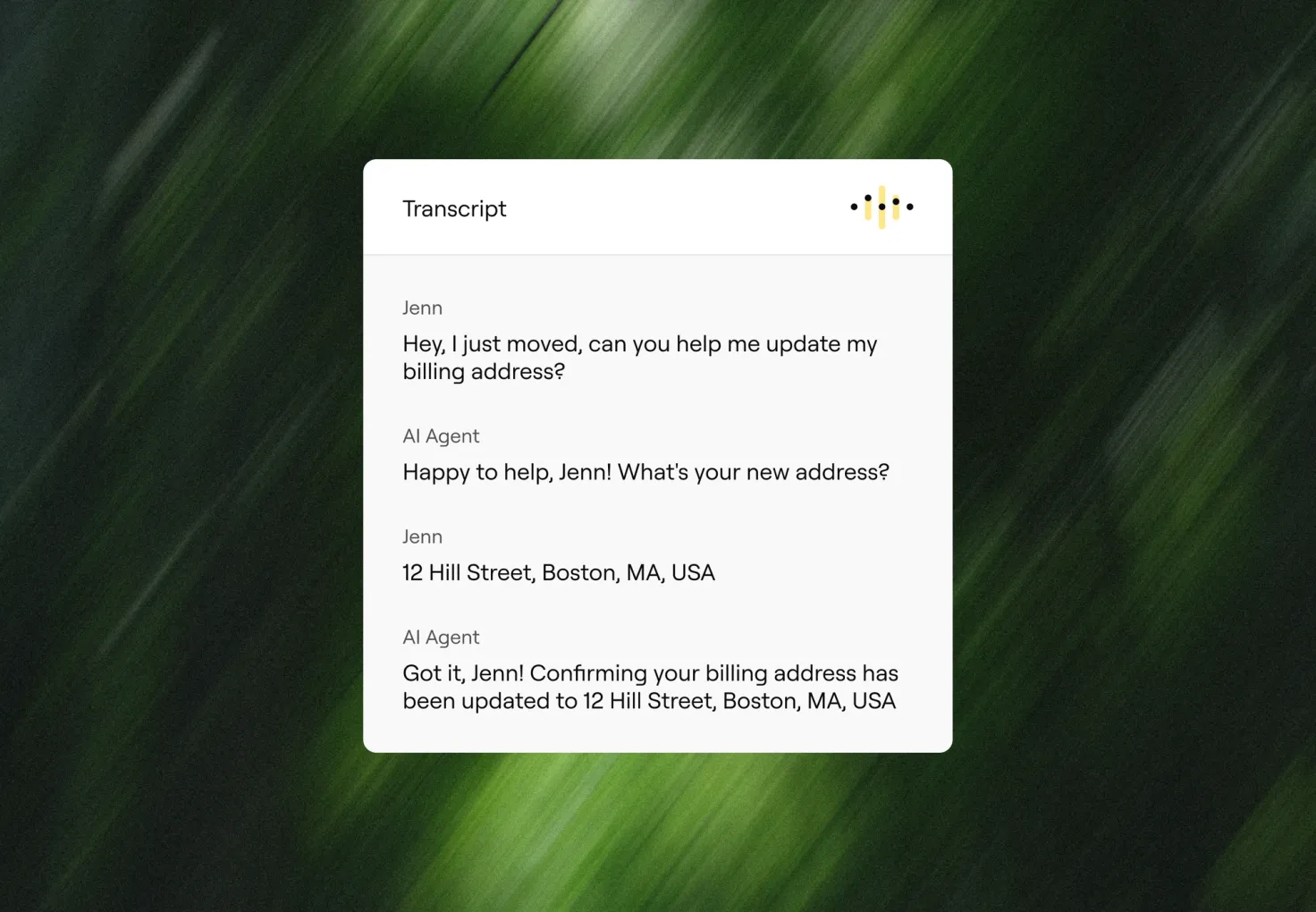
Assessment: Is your enterprise ready for AI customer service?
Before choosing the right AI customer service solution for enterprise scale, use this assessment to make sure your organization is set up for long-term success.
Learn More

Call center technology hasn’t kept pace with what customers expect or what contact center leaders actually need. And nowhere is that gap more obvious than in voice.
Despite the rise of digital channels, voice remains the most preferred support channel when urgency, emotion, or complexity are involved. And as call volumes rise, so do customer expectations for fast, human, and frustration-free service.
Most companies, however, are still relying on legacy IVR systems that haven’t evolved in decades. They’re rigid, expensive, and often more of a bottleneck than a bridge.
The solution is smarter, more human-centered AI customer service . Built for conversation, not containment. Capable of actually solving problems, not just routing them.
That’s where AI voice agents come in. And they’re redefining what voice can do.
So what exactly are AI voice agents? And why are more enterprises replacing their legacy IVRs with them every year? Let’s get into it.
80% of businesses plan to adopt AI-driven voice technology in customer service by 2026.
AI voice agents aren’t just an IVR upgrade. They’re a completely different class of technology. But before we get into how they work, it’s worth looking at what they’re replacing.
Interactive Voice Response (IVR) is a telephony system that allows callers to interact with a phone menu using keypad inputs or simple voice commands. Traditionally used to route calls or collect basic information, IVRs follow predefined scripts and decision trees, often leading to rigid, repetitive experiences for the customer.
While IVRs were designed to increase efficiency and reduce agent load, they’re limited in their ability to adapt, understand intent, or resolve issues on their own. As customer expectations rise, these systems are increasingly seen as outdated and misaligned with modern CX standards.
Here’s what a traditional IVR does:
It’s a system designed to filter, not engage. And that’s the problem. IVRs can collect information, but they can’t adapt. They don’t understand context, they can’t solve problems, and they definitely can’t scale personalization.
An AI voice agent is an intelligent, automated system that uses technologies like natural language understanding (NLU) and automatic speech recognition (ASR) to handle customer phone calls in real time.
Unlike legacy IVRs, AI voice agents can understand open-ended speech, determine intent, take action, and escalate with full context—all while sounding natural and on-brand.

When integrated into an omnichannel platform , they work alongside chat, SMS, and other support channels to deliver a seamless, scalable customer experience.
An AI voice agent can:
Customers don’t want to navigate a phone tree; they want their issue resolved. AI voice agents deliver that by turning a rigid, frustrating channel into a fast, conversational experience that works for everyone involved.

And while the customer experience is the most visible win, the real power of voice AI is in what it unlocks for the business.
AI voice agents don’t just improve experience, they drive measurable business impact. Organizations using AI voice technology have seen up to 35% reductions in call handling time and 30% gains in customer satisfaction.
Success is dependent on being part of a broader system that’s built for performance, not just automation. That means having:
Because, again, the goal isn’t just to contain calls, it’s to resolve them. And with the right setup, AI voice agents can handle 20–40% of voice volume without human escalation. That means faster answers, fewer transfers, and lower effort for everyone involved.
When voice AI agents are a fully integrated and continuously optimized part of your customer service operating model, they can:
Every contact center has goals around efficiency. But the real opportunity with AI voice agents isn’t just operational, it’s strategic.
When your voice agent becomes the first point of contact for your brand, it sets the tone for every interaction. It reflects your values. It builds trust. And it scales your best service to every caller instantly.
That’s more than automation. That’s ownership.
With the right systems around it, your AI voice agent can:

It becomes a strategic input, not just a cost to manage. And it gives your team more space to focus on what humans do best: empathy, creativity, and complex problem-solving.
Legacy systems weren’t built for today’s customers or today’s service teams. AI voice agents are.
They resolve more calls, reduce overhead, and unlock new value across the customer journey. But the real impact comes when they’re treated not as a quick fix, but as a core part of your CX strategy.
With the right platform, team, and practice behind them, AI voice agents don’t just scale service, they redefine what voice can do for your business.
Callers only wait 30 seconds on hold before hanging up. With ada handling call center automation, you can deliver instant support and real-time resolutions—all in effortless conversation.
Learn more